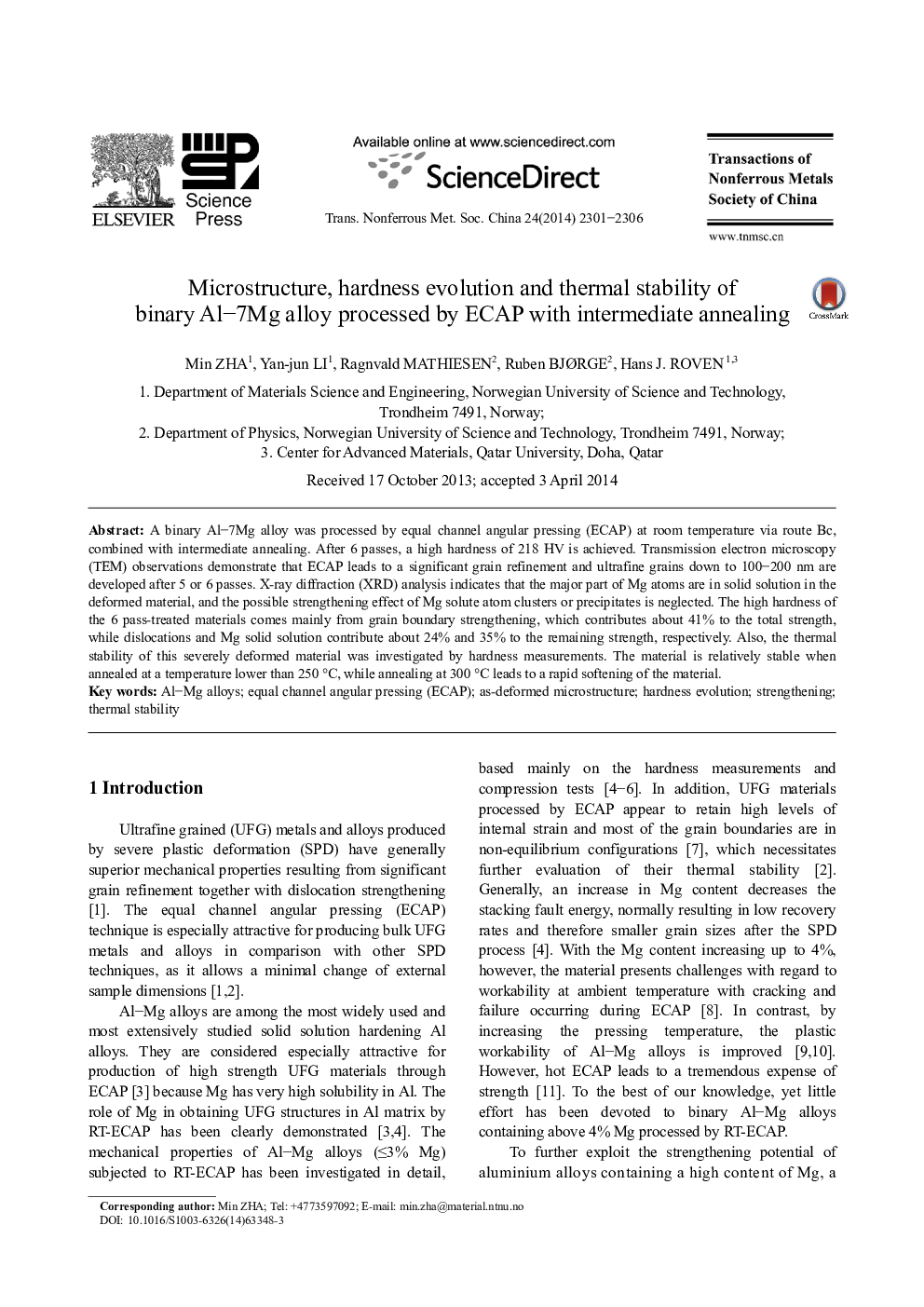| Article ID | Journal | Published Year | Pages | File Type |
|---|---|---|---|---|
| 1637355 | Transactions of Nonferrous Metals Society of China | 2014 | 6 Pages |
A binary Al-7Mg alloy was processed by equal channel angular pressing (ECAP) at room temperature via route Bc, combined with intermediate annealing. After 6 passes, a high hardness of 218 HV is achieved. Transmission electron microscopy (TEM) observations demonstrate that ECAP leads to a significant grain refinement and ultrafine grains down to 100-200 nm are developed after 5 or 6 passes. X-ray diffraction (XRD) analysis indicates that the major part of Mg atoms are in solid solution in the deformed material, and the possible strengthening effect of Mg solute atom clusters or precipitates is neglected. The high hardness of the 6 pass-treated materials comes mainly from grain boundary strengthening, which contributes about 41% to the total strength, while dislocations and Mg solid solution contribute about 24% and 35% to the remaining strength, respectively. Also, the thermal stability of this severely deformed material was investigated by hardness measurements. The material is relatively stable when annealed at a temperature lower than 250 °C, while annealing at 300 °C leads to a rapid softening of the material.
